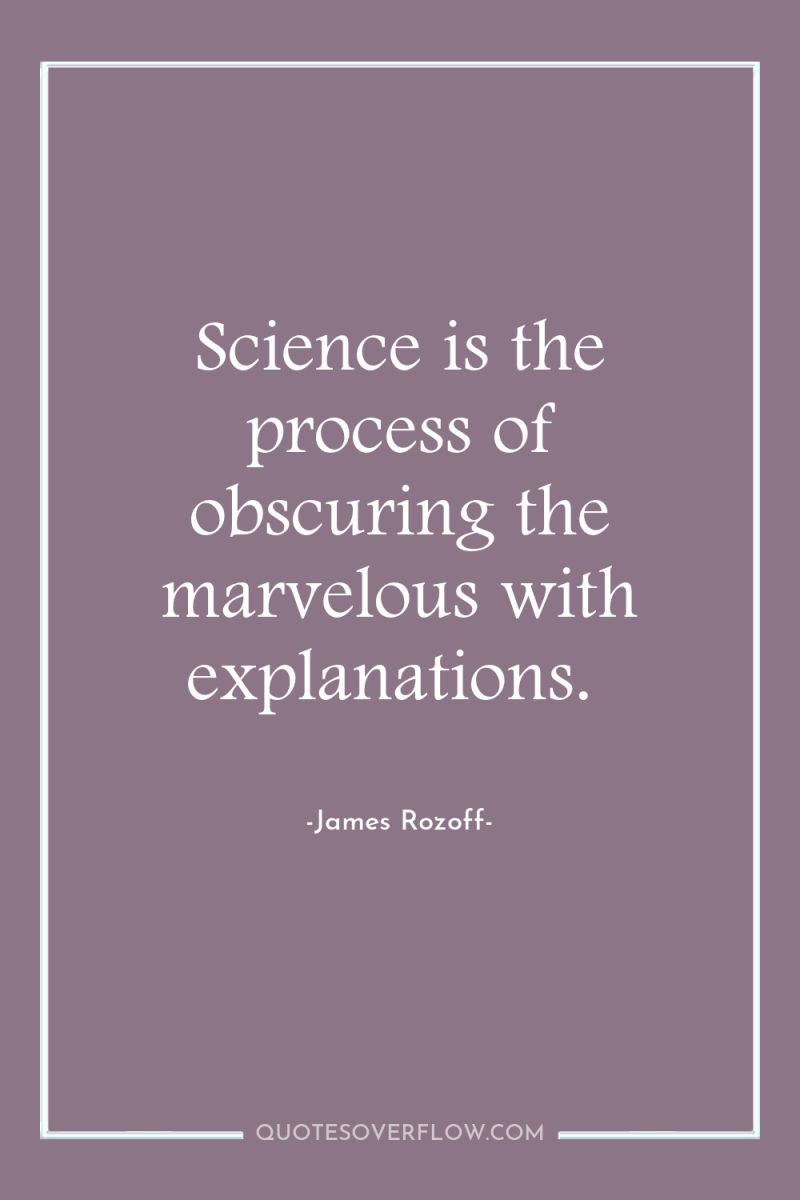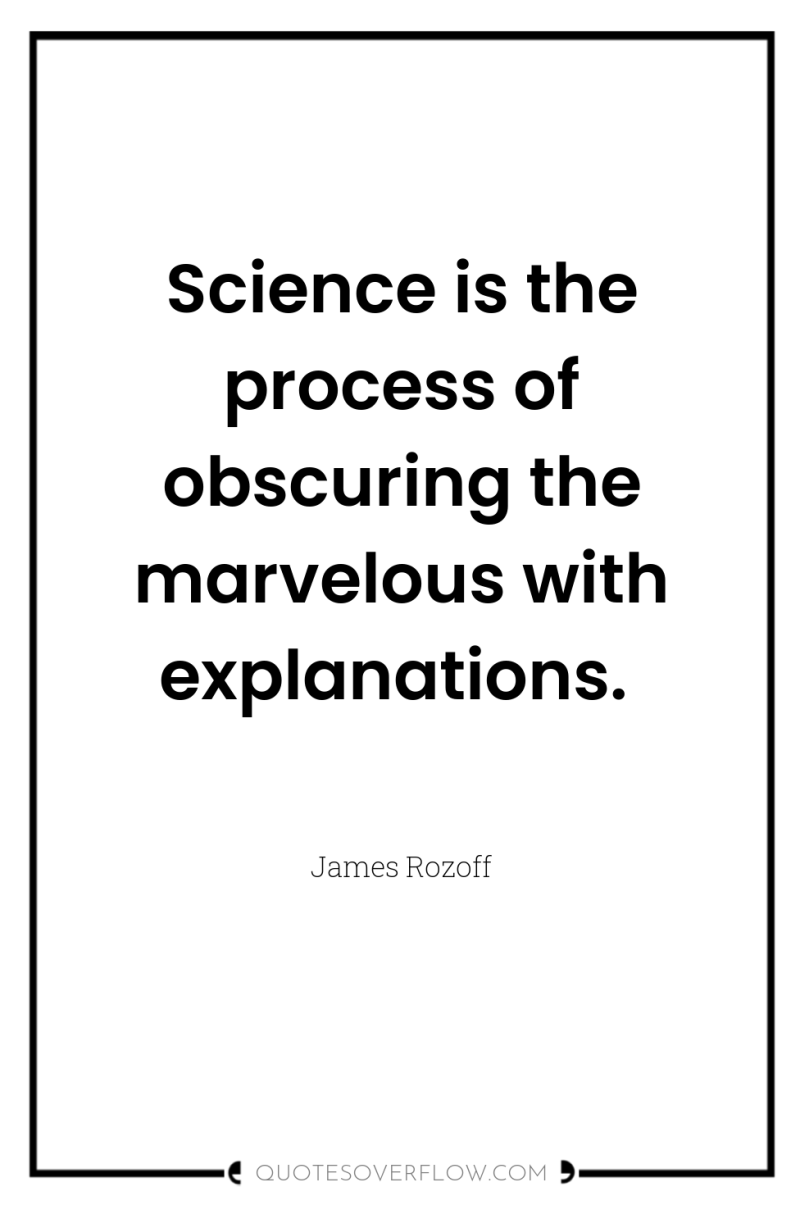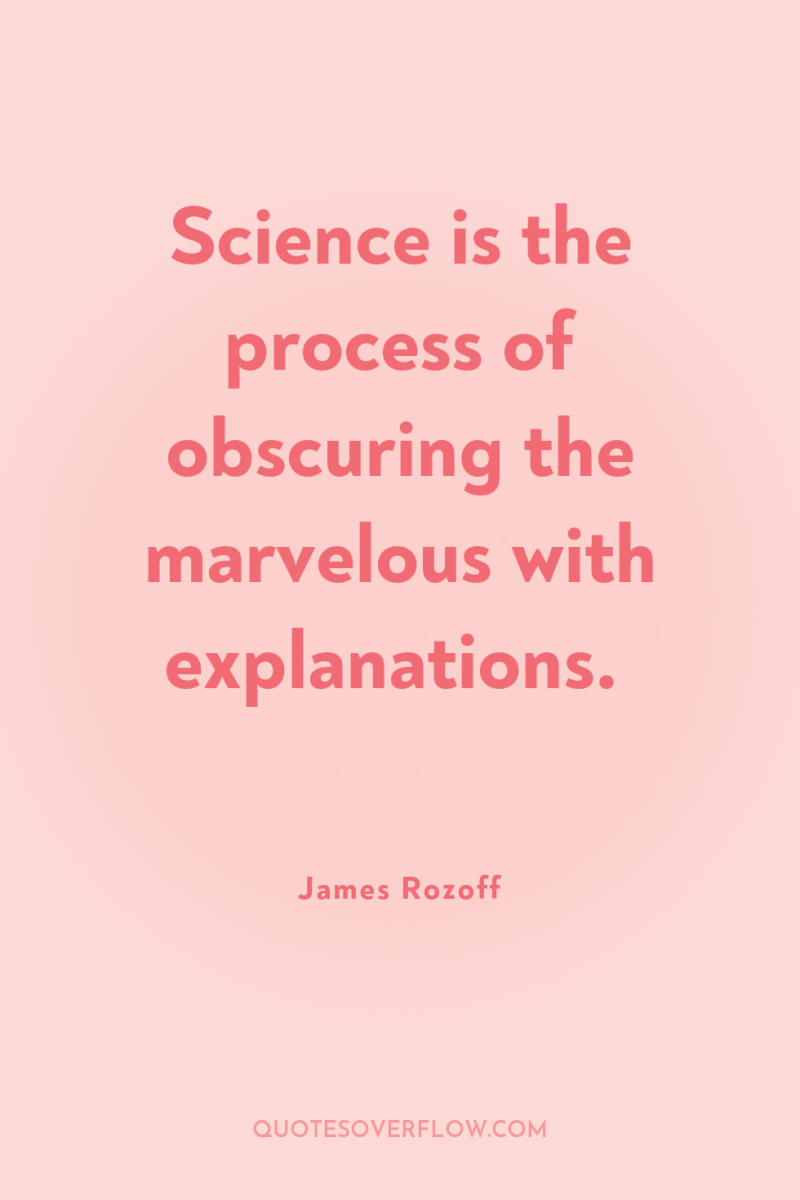James RozoffScience is the process of obscuring the marvelous with explanations.




About This Quote
Science is the process of obscuring the marvelous with explanations. Science, as a whole, is wonderful and we definitely need it to make our lives better. However, we do not always need or want to know how something works or what is actually going on. Sometimes, we just want to enjoy the miraculous.
As such, some people believe that science as it is today has become too complicated and is very often used as an excuse for those who don’t know what else to do. However, some scientists feel that science has become too simple and uninteresting as well. Giving us an explanation for everything does not make us feel more in awe of the world around us.
Some Similar Quotes
- A friend is someone who knows all about you and still loves you.
- The man of knowledge must be able not only to love his enemies but also to hate his friends.
- Ur be the things I am wiser to know: Idleness, sorrow, a friend, and a foe. Four be the things I'd been better without: Love, curiosity, freckles, and doubt. Three be the things I shall never attain: Envy, content, and sufficient champagne. Three be the...
- The eye through which I see God is the same eye through which God sees me; my eye and God's eye are one eye, one seeing, one knowing, one love.
- Conquer the angry one by not getting angry; conquer the wicked by goodness; conquer the stingy by generosity, and the liar by speaking the truth.]
More Quotes By James Rozoff
- Science is the one human activity that is truly progressive. The body of positive knowledge is transmitted from generation to generation.
- With increasing distance, our knowledge fades, and fades rapidly. Eventually, we reach the dim boundary–the utmost limits of our telescopes. There, we measure shadows, and we search among ghostly errors of measurement for landmarks that are scarcely more substantial. The search will continue. Not until...
- The history of astronomy is a history of receding horizons.
- We find them smaller and fainter, in constantly increasing numbers, and we know that we are reaching into space, farther and farther, until, with the faintest nebulae that can be detected with the greatest telescopes, we arrive at the frontier of the known universe.